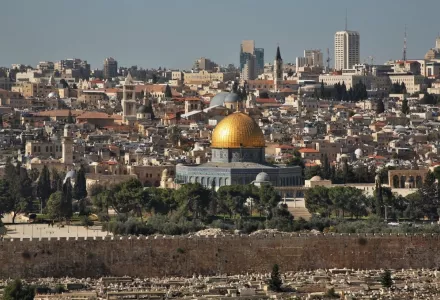Tareq Nassar was born in 1984 and grew up in Ras Al-Amoud neighborhood in East Jerusalem. In 2002, he finished high school with an average of 95%. Has a Bachelor in Architectural Engineering from BirZeit University and a double Masters degree in Integrated Urbanism and Sustainable Design from Stuttgart University (Germany) and Ain Shams University (Cairo). Has worked in the USA, Jordan, Tunisia, West Bank and Israel.
Has worked as a freelance architect and an urban planner working on several projects in Jerusalem and other areas focusing on Placemaking, master plans and community development, with a specific focus on the East Jerusalem neighborhoods. Recent projects include the Jerusalem ‘Making Places’ Program, a multiyear Placemaking program throughout the city in various East Jerusalem neighbourhoods. He has worked as curator for the 2019 Matchmaker Project, part of the annual Jerusalem Design Week, which hosted contemporary Palestinian designers from East Jerusalem and craftsmen from all over the West bank. In addition, he was part of the management and research team for a project funded by the EU Peacebuilding Initiative on ‘Building VIsions for the Future of Jerusalem: A Bottom UP Approach’, which includes Placemaking, Photovoice and graphic design elements, working with communities in neighbourhoods in East and West Jerusalem.
In 2019, initiated the Sinsila centre; It's a new model for urban sustainability in East Jerusalem, which aims to heal the urban environment of the eastern part, through educating, inspiring and empowering local communities in EJ.
Through his experience as a community architect, he has developed methods to work with communities to design, implement and activate projects, applicable in areas with limited, or no master plans as well as a toolbox for designing in contentious places. A recognized expert in his field, he has presented in conferences and workshops worldwide.

